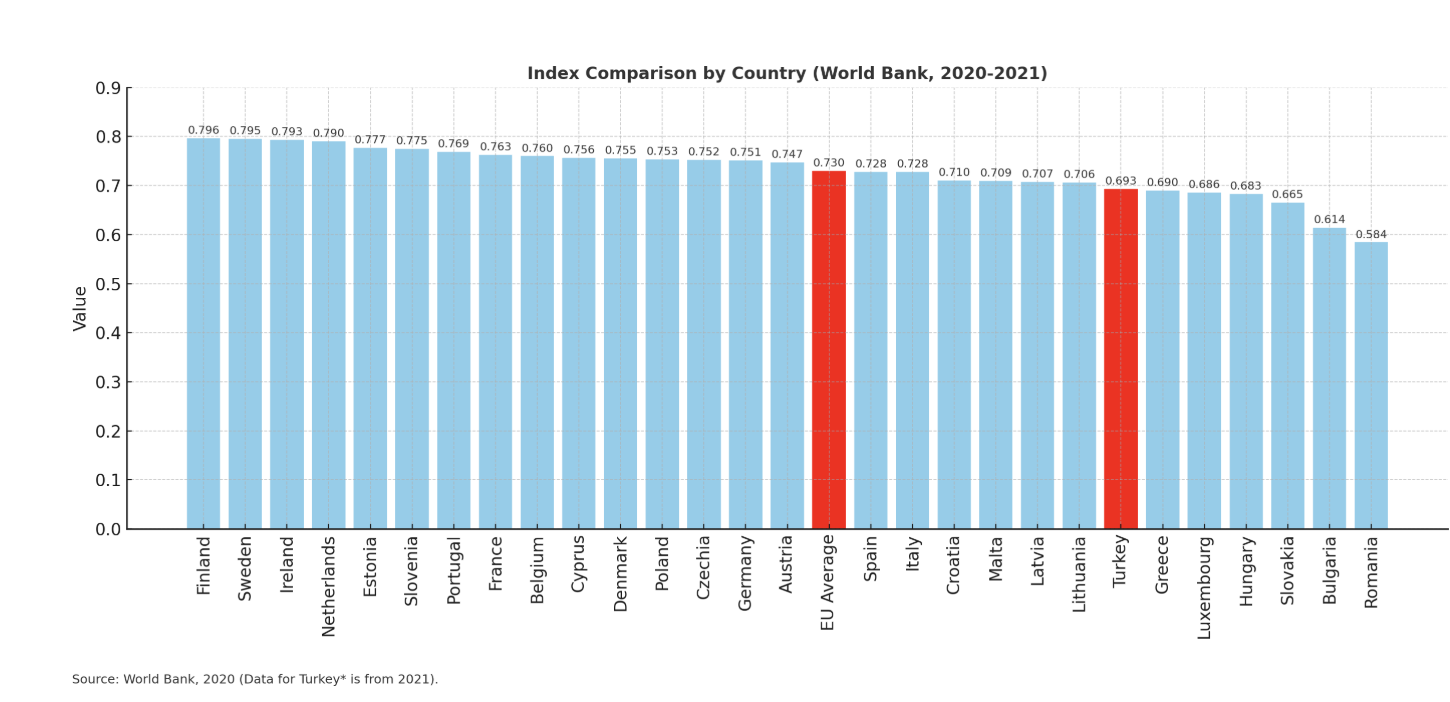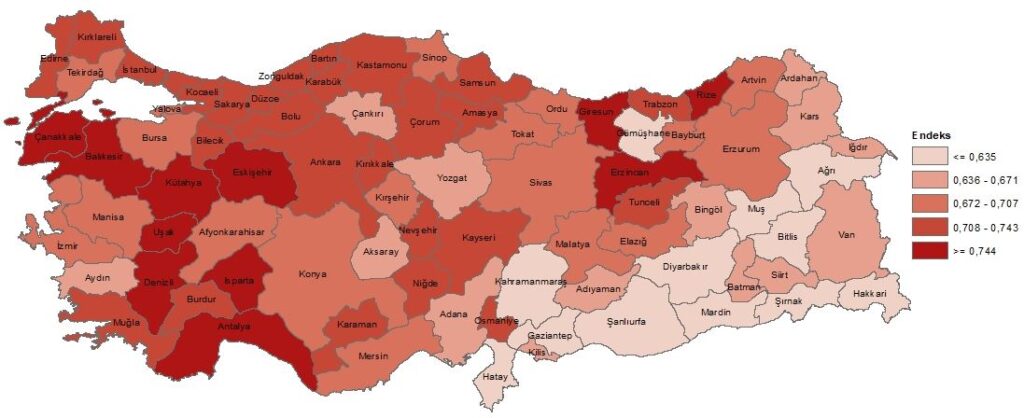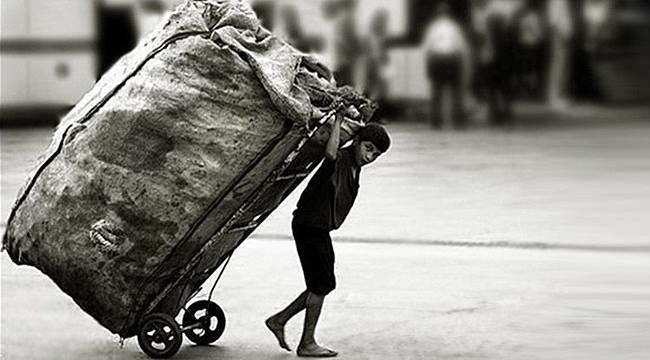Levent Kenez/Stockholm
Turkish Statistical Institute (TurkStat) has released its official national statistics on the Human Capital Index, with the numbers painting a troubling picture. The index, which measures how well countries invest in the health and education of their children, shows that although most Turkish children survive early childhood, weaknesses in education and gaps in long-term health mean a child born today is expected to achieve only about two-thirds of their potential productivity by the time they turn 18.
The Human Capital Index (HCI) was created by the World Bank as part of its Human Capital Project, which emphasizes human development as a driver of inclusive growth. The methodology is straightforward. The index ranges from zero to one, with one representing the scenario in which a child reaches full potential in both health and education. Lower values reflect losses caused by mortality, malnutrition, insufficient years of schooling or poor learning outcomes. The index is calculated by multiplying three key components: survival, health and education. Survival is measured by the probability that a child will live until age five. Health is assessed using adult survival rates, such as the proportion of 15-year-olds expected to reach age 60, as well as the share of children under five who exhibit healthy growth. Education is based on the expected number of years of schooling adjusted by how much children actually learn, a concept known as learning-adjusted years of schooling. Together, these factors determine how much human capital a society builds for future generations.
Turkey’s figure, recorded at 0.65, is lower than the European Union average of 0.73 and well behind the scores of the region’s top performers such as Finland, Sweden and Ireland, which approach 0.80. The findings highlight the fact that despite 22 years of uninterrupted rule under President Recep Tayyip Erdogan, Turkey has not achieved the improvements in human capital quality that many had expected.
The data indicate that despite strong early childhood survival, gaps in education and long-term health still hinder the realization of full human potential. According to the World Bank’s data, Turkish students spend an average of more than a decade in school, but when adjusted for learning, this shrinks significantly. In other words, while attendance is high, the quality of education remains a major concern. Health indicators are better but not strong enough to compensate for the weaknesses in education. The result is an overall score that is closer to the lower end of the European spectrum and well below the standards achieved by advanced economies.

The comparison with European Union countries is striking. Finland’s score stands at 0.796, Sweden at 0.795, and Ireland at 0.793. Even Romania, which posts the lowest HCI among EU members at 0.584, has recorded consistent improvements in health and education over the last decade, whereas Turkey’s progress has been limited. Bulgaria and Slovakia, with scores of 0.614 and 0.665, respectively, are also positioned in a similar range, but both benefit from EU frameworks that encourage continued convergence with higher performers. Turkey, despite being geographically and economically connected to Europe, has failed to close the gap.
Outside the EU, comparisons are equally telling. Chile, for example, has achieved an HCI score above 0.70 thanks to long-standing investments in education reform and child health programs. Vietnam, a lower-middle-income country, scores around 0.69, higher than Turkey despite significantly lower income levels. This reflects a policy emphasis on quality education and universal health coverage. China records 0.65, roughly the same as Turkey, but with ongoing initiatives aimed at raising learning outcomes nationwide. Meanwhile, countries such as Mexico and Brazil register similar or slightly lower scores, showing that Turkey is positioned among middle performers globally rather than advancing toward high-income standards.
The index also provides insight into long-term economic prospects. A score of 0.65 means that Turkey’s future workforce will be only 65 percent as productive as it could be under optimal conditions. This gap represents a major constraint on potential growth, competitiveness and income levels. The World Bank stresses that countries with stronger human capital achieve faster economic development, better resilience against crises and higher levels of equality. For Turkey, the shortfall signals that decades of economic expansion have not translated into sustained gains in quality of education or health outcomes.
At the national level, the newly released figures by TurkStat indicate that the Human Capital Index for Turkey declined slightly in recent years. The index was 0.693 in 2021, rose to 0.696 in 2022 and then fell to 0.690 in 2023. The breakdown shows that the survival component dropped marginally, from 0.988 in 2021 to 0.985 in 2023. The health component improved slightly to 0.966, but education weakened, declining from 0.735 in 2021 to 0.725 in 2023. These movements suggest that the education system remains the primary bottleneck, as learning outcomes have failed to keep pace with enrollment rates.
Regional data also underline sharp inequalities within the country. In 2023 the highest score was observed in Çanakkale at 0.781, followed by Antalya, Erzincan, Eskişehir and Rize, all above 0.74. At the other end of the spectrum Şırnak recorded the lowest value at 0.599, with Ağrı, Şanlıurfa, Gümüşhane and Muş also below 0.62. The fact that some provinces approach EU averages while others fall closer to the lowest performers in the Balkans illustrates deep structural divides in access to quality education and health services. These disparities reduce the ability of the country as a whole to improve its human capital stock.
Globally, the release of Turkey’s index comes at a time when many governments are reassessing the importance of human capital in long-term growth strategies. The World Bank’s Human Capital Project has documented how investments in children’s health and education can yield returns many times higher than traditional infrastructure spending. Countries such as Singapore and South Korea, which once recorded modest human capital levels, transformed their economies through a sustained policy focus on schooling and healthcare. Singapore today scores above 0.88, one of the highest worldwide, while South Korea stands above 0.80. These examples highlight how deliberate policy choices can elevate national productivity over a generation.
Turkey’s lower performance reflects missed opportunities. Over the past 22 years the government has overseen significant economic and political change, yet the data show that these shifts have not translated into meaningful gains in human capital. While public investment in school construction expanded access, issues with curriculum quality, teacher training and educational outcomes persist. Health reforms improved access to hospitals and clinics, but long-term health indicators such as adult survival rates remain below EU averages. The combined effect is a national index that fails to capture the potential of a young population and instead signals continued underperformance.

The Human Capital Index is not merely a statistical exercise. It is designed to inform national policies and guide international comparisons. By quantifying the gap between actual and potential productivity, it highlights the urgency of reforms. For Turkey, the score of 0.65 is a reminder that economic achievements alone cannot secure sustainable prosperity without parallel progress in education and health. Children born today will enter the workforce two decades from now. Unless conditions change, they will do so with skills and health levels well below what is achievable.
Turkey’s challenge is therefore not insurmountable. With targeted investments in teacher training, early childhood development and preventive healthcare, the country could raise its Human Capital Index significantly over the coming years. But the fact remains that after more than two decades under the same government, progress has stalled. Even the official figures, which many believe are not trustworthy, makes clear that without decisive changes, the productivity potential of future generations will remain compromised.
The Human Capital Index exposes gaps that traditional economic metrics often overlook. Gross domestic product can rise while education and health lag behind. Turkey’s new data show that despite infrastructure growth and expansion in higher education enrollment, the fundamental quality of human capital remains inadequate.












